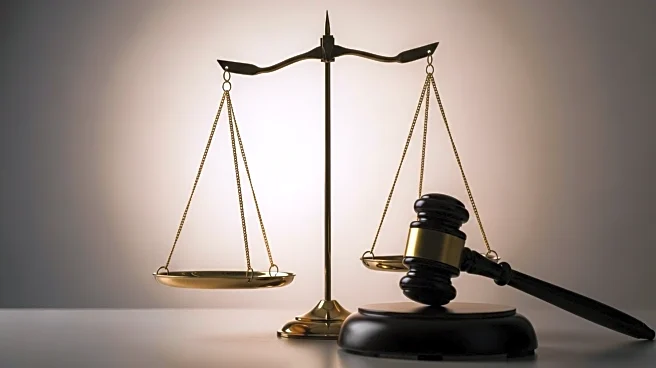What's Happening?
The Justice Department has decided to stop defending the criminal case against Peter Navarro, President Trump's former trade adviser, who is appealing his conviction for defying a congressional subpoena related to the January 6, 2021, attack on the U.S. Capitol. Navarro was sentenced to four months in prison for ignoring requests for records and testimony from the House select committee investigating the riots. The DOJ's recent court filing indicates a shift in position, potentially aiding Navarro's appeal. Navarro criticized the DOJ's decision, suggesting it lacked legal reasoning, which could have bolstered his case. He argues that the subpoena requests violated executive privilege, a defense that was not accepted during his trial.
Why It's Important?
This development is significant as it highlights the contentious nature of prosecuting presidential advisers for contempt of Congress, a rare and controversial action. Navarro's case could set a precedent regarding executive privilege, impacting future interactions between Congress and presidential aides. The DOJ's change in stance may reflect broader shifts in legal strategies under the current administration, potentially affecting other cases related to the January 6 events. The outcome of Navarro's appeal could influence how executive privilege is interpreted and applied in legal contexts, affecting both political and legal landscapes.
What's Next?
Navarro's appeal is under review by the U.S. Court of Appeals for the D.C. Circuit, which may appoint a private attorney to continue prosecuting the case. The court's decision could have implications for the legal understanding of executive privilege and its limits. The DOJ's reversal raises questions about due process and fairness, which may prompt further legal scrutiny and debate. The case's progression will be closely watched by legal experts and political stakeholders, as it could influence future congressional investigations and executive branch interactions.









